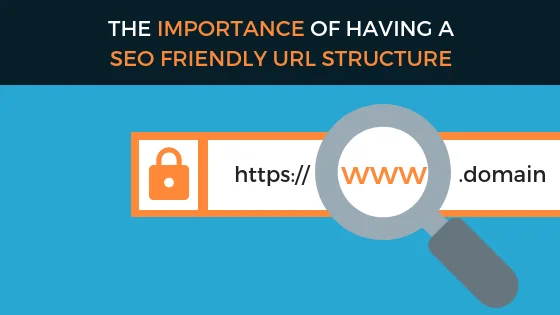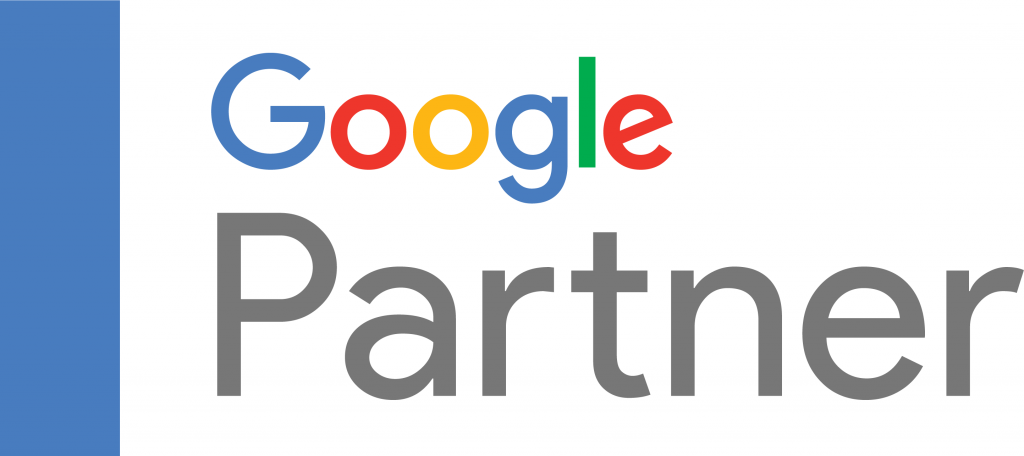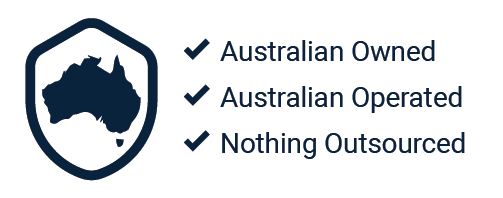By Kelvin Sim
Introduction
Uniform Resource Locators (URLs) are the building blocks of an effective website hierarchy. Therefore it is imperative to structure them right the first time round. However getting your URL structure right involves a complex blend of usability and accessibility factors, along with some good old-fashioned SEO.
In this blog post, we will cover the importance of having an SEO friendly URL that will set your website up for success in the Search Engine Results Pages (SERPs). But first, let’s talk about what a URL is.
What is a URL?

URLs are the most common type of Uniform Resource Identifiers (URI). They contain strings of characters used to identify a resource over a network, making them essential to navigate through the web.
A URL is a unique identifier used to locate a resource on the web, which gives you the specific address (also referred to as a web address) to a website or piece of content on the World Wide Web.
What is a URL Structure?
A URL contains the following elements:
- Protocol: indicates how browsers should retrieve information about a resource.
- www: was originally used to distinguish the website of a domain from any other elements of that domain.
- Domain name: or hostname is the readable text name of the specific location where a resource (in many cases, a website) is located.
- Top Domain Name (TDL): refers to the last segment of a domain name, or the part that follows immediately after the “dot” symbol. TLDs are mainly classified into two categories: generic TLDs and country-specific TLDs.
- Path: which includes the specific subfolder structure where a web page is located.
For example:

Why Does URL Structure Matter?
When it comes to your website, the URL is generally the first thing both search engines and users see, and since the entire concept of SEO is to reduce the time a user spends searching for a relevant result, first impressions are very important.
There are 2 key reasons why your URL structure matters:
- It provides users a structured reference to where they are on your website.For example, your URL is as follows:
www.ecommerceclothingstore.com.au/mens/shirts/black-crew-neck.
Users will be able to understand that the page they are visiting belongs in the two categories that precede the final part of the HTML: men’s shirts.
If users were not able to see the title tag, the semantically accurate URL would still provide users a clear idea of what this landing page is about, and would provide visitors with an improved user experience by making it clear what they expect to see if they click on this link in the SERPs.
For example, our Ignite Search URL below is what we call a ‘semantically accurate’ URL

- It plays a role in helping search engines such as Google to understand the contents of your web page as they crawl and index them.
Along with your title tag, link anchor text, and the content itself, search engines use your web page’s URL to understand what your content is all about.
For example, given the previous URL:
www.ecommerceclothingstore.com.au/mens/shirts/black-crew-neck.
Search engine bots will be able to see that a ‘black crew neck shirt’ falls under the same category as other shirts (if any, depending on your product listing), which falls under a larger category of men’s clothing on your Ecommerce retail store.
In addition to this, URLs are a ranking factor search engines use when determining a web page’s relevance to a search query. While search engines do consider the authority of the overall domain itself more, well-structured URL with the inclusion of primary keywords can increase your ability to rank hire, but more on that later.
Too often though, websites are created with only the users in mind and not the search engine. Undoubtedly the users are the ones engaging with your website but if it isn’t SEO optimised the pages won’t be visible in the SERPs.
SEO Best Practices for URLs
Keep It Simple
Keeping URLs as simple, relevant, compelling, and accurate as possible is the key to getting both your users and search engines to understand them. Although URLs can include ID numbers and codes, the best practice is to use words that people can comprehend.
URLs should be definitive but concise. By seeing only the URL, a user and search engine should have a good idea of what to expect on the page. First off, the length of the URL matters despite search engines such as Google not having a specific number of characters it allows. A shorter URL means that is has fewer folders — which mean it’s easier for search engines to find and sort relevance.
Although there are no formal announcement from Google saying there is a limit to the number of characters in a given URL, Google’s John Mueller has recommended keeping your URL under a 1000 characters.
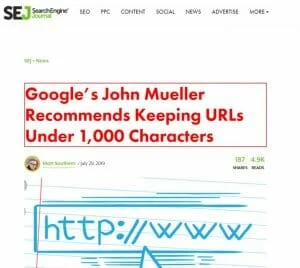
Incorporate Keywords
There have been a constant debates regarding whether search engines such as Google considers the keywords in your URLs. Search engines such as Google, does count and sort the keywords in your URL structure when it ranks your website. However, this must be supported by the use of the same keywords in the content of your website to improve your search engine rankings.
Keep in mind that search engines considers a wide range of on-page and off-page web elements to figure out what your page is about. So, if you’re aiming to achieve the best rankings for your website, particularly for highly competitive keyword phrases, it is smart to make room for targeted keywords in the URLs of your website.
But remember, overdoing or duplicating keywords will give the search engines the impression that you are trying to manipulate the search results with malicious spamming actions. Keyword stuffing and spamming — putting too many keywords in your website will be detrimental to your website’s ranking.
The Use of Hyphens, Underscores & Various Symbols
For readability, use hyphens to separate words. URLs should not use underscores, spaces, or any other characters to separate words. Search engines such as Google treats a hyphen as a word separator, but does not treat an underscore the same way.
Google treats an underscore as a word joiner – so red_sneakers is the same as redsneakers to Google.
For example, if the following URL contains underscores instead of hyphens Google would see the following:
Unoptimised URL structure (With Underscore)
https://www.ignitesearch.com.au/seo_search_engine_optimisation/backlink_management_removal/
Unoptimised URL structure (How Google sees it)
https://www.ignitesearch.com.au/seosearchengine/backlinkmanagementremoval/
We recommend incorporating hyphens in your URL as word separators to enhance the readability for users and search engines alike as seen below,
https://www.ignitesearch.com.au/seo-search-engine-optimisation/backlink-management-removal/
On the contrary, adding ‘spaces’ in your URL structure will display set of characters that would have a negative impact on user readability.
For example, by adding ‘spaces’ instead of hyphens to the following URL,
https://www.ignitesearch.com.au/seo-search-engine-optimisation/backlink-management-removal/
Your URL structure will replace the ‘spaces’ with ‘%20’ in the search bar of your browser, as seen below
![]()
This ‘%20’ can cause problems for the search engine spiders crawling your web site, and may cause issues with indexation.
In addition to the spaces, the use of various symbols and characters will have the same issue.
For example, search engines such as Google will ignore the symbol ‘#’ and everything after it in any given URL as seen below,
Un-optimised URL Structure (With #)
https://www.ignitesearch.com.au/#seo-search-engine-optimisation/backlink-management-removal/
Un-optimised URL Structure (How Google sees it)
https://www.ignitesearch.com.au/
We recommend avoiding any symbols or characters in your URL. Furthermore, this is supported by Google’s John Mueller, as he also suggests avoiding any symbols and characters in your URLs. He said Google handles it fine when these URLs are in your XML sitemap file or normal links but when they discover the links via HTML, it can be confusing for them.
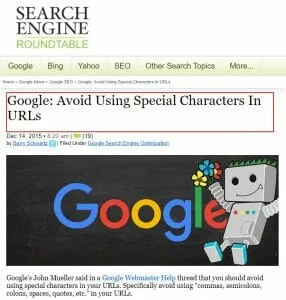
Avoid Mixed Case URLS
Structure your website’s URL consistently when it comes to letter case. Having consistency with your URL prevents search engines such as Google from confusing your URL as two pages instead of one.
As seen in the example below, when the following URLs were searched, the same web page loaded, however the URLs were different.
- https://www.ignitesearch.com.au/seo-search-engine-optimisation/backlink-management-removal/
- https://www.ignitesearch.com.au/Seo-Search-Engine-Optimisation/Backlink-Management-Removal/
We suggest using lowercase letters in your URLs at all times. In some cases, uppercase letters can cause issues with duplicate pages. In the above example, these two URLs might be seen as two distinct URLs, which might create issues with duplicate content. This varies from various Content Management Systems (CMS), it is important to 301 redirect variations of the same URL to main page’s URL.
Conclusion
With some planning and attention to detail, your URL structure can go a long way to maximising your website’s ability to perform for users and search engines alike.

